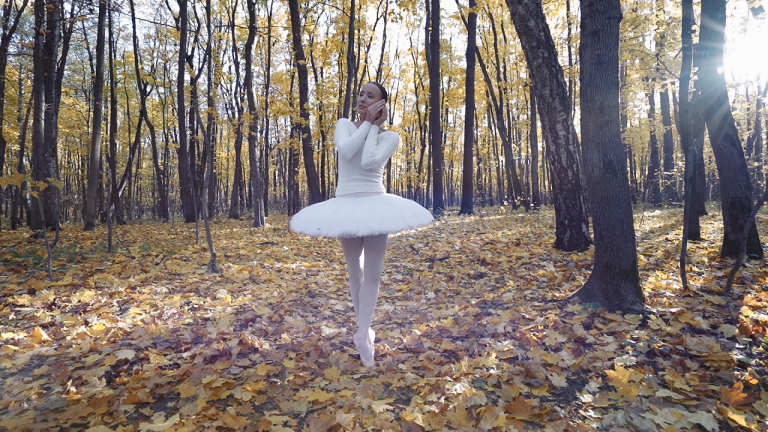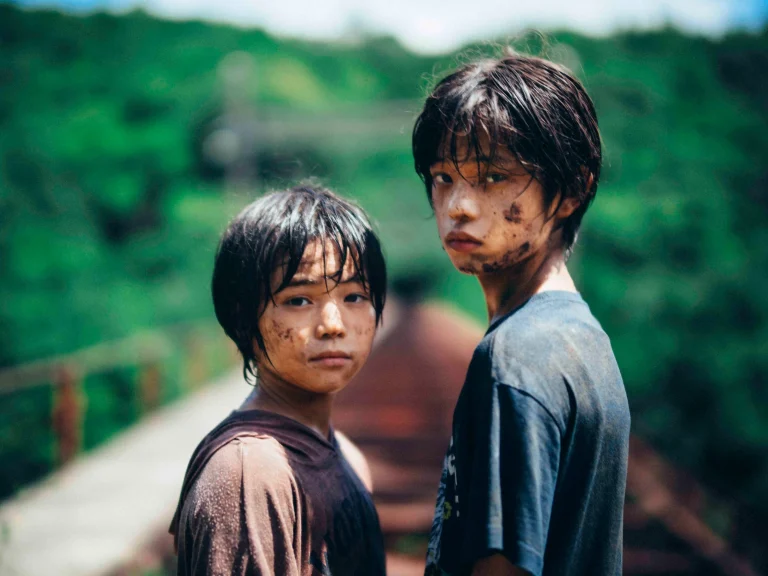Suzume (2022) Movie Review: In Makoto Shinkai’s Your Name, two people share an inexplicable, magic connection that defies the rules of objective reality. The kind of artist who roots all of his stories in a strong emotional core, Shinkai uses animation as a canvas for expressing moving, life-altering bonds that manage to defeat the obstacles that limit them. This strain of rare, genuine devotion towards another is also prominently featured in his latest entry, Suzume, which is a beautiful exploration of fated connections and inner healing. It’s rendered in stunning animated sequences brimming with utmost love for the medium.
Suzume weaves pathos with supernatural spectacle, the purest form of love with the messy spectrum of human emotions, and heartwarming humor with the most authentic, bittersweet homecoming.
What can be defined as “home” is undoubtedly a subjective sentiment, shaped by our varied pasts and worldviews. In this instance, Suzume (Nanoka Hara), who lost her mother when she was only 4 years old, is haunted by a particular dream involving her mother in a realm that can only be described as otherworldly.
Her aunt, Tamaki (Eri Fukatsu), has helped her remain emotionally grounded after the tragedy, showering her with love to a point that feels somewhat overbearing for the teenager. As Suzume lost her mother to a natural disaster, the constant, looming threat of earthquakes plaguing Japan ties in well with the events that drastically alter the course of her life.
On her way to school, Suzume is immediately smitten by the handsome, mysterious Sōta (Hokuto Matsumura), who asks her if she happens to know whether there are any ruins in the area. Curious, Suzume ends up in the abandoned site moments later, only to find a door that overlooks a world that looks like the dream that haunts her — the same dream involving her as a child and her mother. However, Suzume is unable to pass over to the other side. In the process, she dislodges a stone marker which immediately defrosts and slinks away. This accidental act had massive consequences, as it unleashes an otherworldly creature that causes devastating earthquakes, which only Suzume and Sōta can see with their naked eye.
Things turn mystical drastically, leading the two on a journey to prevent similar gates from getting activated and causing high-intensity earthquakes across Japan. While Suzume’s journey is kick-started due to her infatuation with the mysterious boy, Shinkai does not lay too much emphasis on the romance in conventional ways — this bond is much more subtle than the fated body-swapping in Your Name, or the element-altering business that Hina and Hodana engage in Weathering With You. After Sōta’s soul is infused into a three-legged chair that was a gift to Suzume by her mother, things take a hilarious turn, especially when there’s an inkling of possible romance blossoming between a runaway girl and a fast-moving chair.
For a film that lives so intensely in the realm of the fantastical, Suzume never struggles to bring these grand ideas to life. Shinkai uses bold, vibrant color palettes to convey emotional subtleties and illustrate the nuances of his storytelling. The beauties and horrors of existence have never been etched in such a genuine, visceral way. It is hard to overlook the aesthetic influence of Hayao Miyazaki — the undisputed master of portraying the multidimensional vignettes of everyday life in various capacities — but Suzume’s strengths are competent enough to stand out on its own.
As much as Suzume is a saga about a frenetic race against time to prevent a catastrophic event, it is ultimately about holding space for the past and returning to oneself. What would you do if you were to cross paths with your inner child, or a young version of yourself? Would you be gentler to them than you are to yourself, and would you give them hope to fight against the darkness and look eagerly towards a limitless future?
Although the answers will invariably depend on who we are and who we seek to be, Suzume discovers some essential truths about trauma, loss, and life itself, and arrives at a life-affirming conclusion in the end. No matter how bleak things might get, loving and living intensely and with genuine authenticity might open us up to the purest form of love.
It is love that spurs Suzume on to her destination even when the odds are impossible, and the only choices she is present with are between the fate of her lover and that of the world. Although this seems like an overplayed trope, there is nothing hackneyed about the way it unfurls in Suzume, like a flower blooming when nourished and cared for. The journey is emotionally messy, yes, but it is perhaps essential to be honest, even when it hurts. After all, we are not confined by one emotion or impulse — what matters is we choose the gentler, life-affirming path to honor those who honor us.
Suzume never rushes towards its conclusion but chooses to linger on the little journeys that lead up to the inevitable, allowing her to bask in the mundane and the magical with equal reverence. There is something beautiful about this meandering, eventful journey, and by the time Suzume arrives where she must, we have arrived with her, peering together through a window to a beautiful, dream-like future filled with hope.








